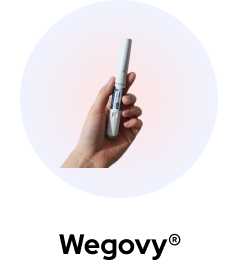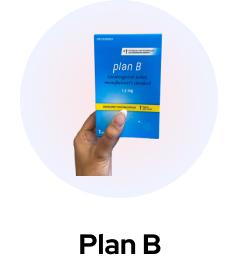Emergency Contraception (EC) is a hot topic (particularly after the overturning of Roe v Wade in the US and is a very helpful reactive method of birth control if you’re worried about getting pregnant.
When is EC used?
Emergency contraception is used to prevent unplanned pregnancy, usually after unprotected sex or sex where the birth control method failed. It very time dependent and is taken as soon as possible after unprotected sex.
It can be difficult to determine what unprotected sex actually means, especially if you use one or more methods of birth control. But we’re here to help, so read on.
Note that emergency contraception doesn’t help prevent STIs or STDs like chlamydia, HPV and more.
What is unprotected sex?
Here are some common examples of unprotected sex:
- I forgot to take my birth control before having vaginal sex with my partner: I missed two days when I was on a trip and I just started the pack
- I forgot to change my birth control patch/ring when I was supposed to
- I didn’t get my birth control shot when I was supposed to
- I had vaginal sex with my partner and they did not pull out in time
- I had vaginal sex with my regular partner but we forgot to buy condoms – I don’t remember when my last menstrual cycle was
- We used a condom but I think it broke/slipped and I don’t use any other birth control
- I am taking a medication that requires me to be on two birth control methods, and I forgot to use a condom
- I was forced to have unprotected vaginal sex
How long after sex should I take EC?
Emergency contraception should be taken within five days of unprotected sex when using a medication like Ella, or within three days for Plan B or Contingency One. It is most effective when taken right after unprotected sex, and fairly effective thereafter.
Is emergency contraception an abortion?
Absolutely not – EC prevents or delays ovulation, thereby preventing pregnancy. It is not at all the same as a medication based abortion, which is used to terminate an existing early-stage pregnancy.
If you’re unsure about whether you’re pregnant, or know that you’re pregnant and want to understand your options, chat with us.
Plan B and its generics
The most commonly known type of emergency contraception is Plan B (the generic versions are back up plan, contingency one). It is a single pill of levonorgestrel (a type of progesterone) in a high dose. What it does is prevent the implantation of a fertilized egg in the uterine lining. It is available without a prescription. It may be less effective for those over 165 lbs. (BMI > 25)
Ella
The other type of emergency contraception is called Ella (ulipristal) and requires a prescription. Ullipristal works by modulating the progestin receptor which prevents an egg from fertilizing successfully. It may be more effective at the five day mark than Plan B and it is more effective at higher body weights than Plan B. Its efficacy starts to decrease for those with weight above 195 lbs.
Copper IUD
The insertion of a copper IUD up to seven days after unprotected sex can act as emergency and long term contraception. This is a great option for those that don’t want to take hormonal birth control.
What are the side effects?
Side effects when taking EC are uncommon. However if you tend to get nausea when taking birth control tablets, the morning after pill may also cause nausea. Consider taking a Gravol 30 minutes before the morning after pill to reduce nausea. If you vomit a dose within 1-2 hours you may need to repeat it.
Other less common side effects are breast tenderness, vaginal spotting, abdominal pain or cramps. If you’re worried, contact your physician or the medical team at Jill Health and we’ll get you help.
How do I know if the EC was effective?
You’ll know that the emergency contraception was effective because:
– You should get your period around the same time as you normally would
– You might experience spotting: it isn’t your period, it is a side effect of the medication
- If you take a pregnancy test, it’ll come out negative
Does EC become less effective with regular use?
No – emergency contraception does not become less effective when you use it. However it is not as effective as using regular birth control and it can be more expensive than ongoing birth control! If you’re finding you need to rely on emergency contraception, like the morning after pill on a regular basis, it might be a sign to switch your birth control routine.
Need emergency contraception? Want to get some to stock your medicine cabinet just in case?













 (US)
(US)